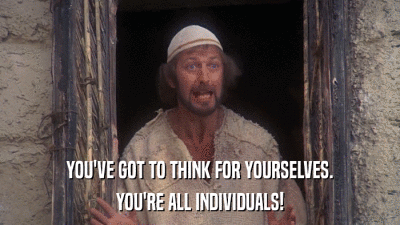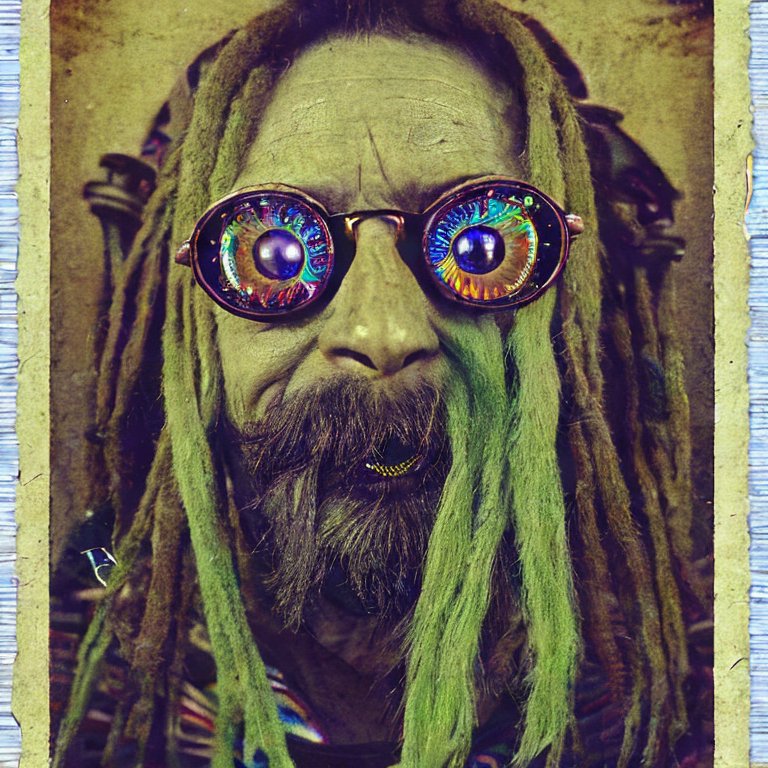Over the past few decades, the number of Americans who identify as religiously unaffiliated—often referred to as “nones”—has grown rapidly. In the 1970s, only about 5% of Americans fell into this category. Today, that number exceeds 25%. Scholars have debated whether this change simply reflects a general decline in belief, or whether it signals something more complex. The research team wanted to explore the deeper forces at play: Why are people leaving institutional religion? What are they replacing it with? And how are their personal values shaping that process?
TL;DR - it’s the hypocrisy.
I was a skeptical little kid, and I have been an atheist since I first learned of the term around 1st grade. I was also very interested in archeology and mythology, so exposure to all those other religions didn’t help the Christianity case. As a child, I assumed that the whole god/jesus thing was just like Santa and the Easter Bunny. That it was a made up story to instill morals in kids, and that eventually when I was older the adults would admit it to me. Of course, they never did. But I had a lot of friends at church and generally enjoyed my time there, so I didn’t openly talk about being an atheist until college.
I actually do kind of miss the community aspect of a church. I have always assumed that is the biggest draw that keeps people interested. Both for the support network, and sense of belonging.
For me it’s because religion is brain cancer that fucks up anyone who takes it seriously.
Because it’s a grift?
No no no, this ancient religion from the Middle East based off of several other cultures mythology is the TRUTH!
Because it’s all horseshit?
I was going to say bullshit but either will do.
When it comes to bullshit, you have to stand in awe of religion.
I miss carlin. I would love to hear his take on the current bullshit.
I’ll do ya one better and go with tyrannosaurus shit.
My guess is that the extreme hatred flowing out of outspoken “Christians” in the US is a huge turn-off, as it should be.
Everyone, myself included always come back to the same reason - there is no proof.
If I was given actual proof of a god or pantheon or any other ridiculous nonsense I’d absolutely change my mind but actual proof magic exists can’t exist because magic isn’t real
I fully accept that I don’t and can’t truly understand the universe but where the fuck does that somehow morph into “god did it” it’s ok not to know everything I don’t need made up bullshit to fill the gaps so I can feel better about not having every answer. Live with not knowing, that’s what being human is meant to be, acceptance
god definitely exists, as it’s just a philosophical concept to say the “cause of all causes”. by definition, such a thing exists, i would say.
the issue is more with organized religion. there’s a lot of rules and bureaucracy in it, and most of that is outdated.
god definitely exists, as it’s just a philosophical concept to say the “cause of all causes”.
I hope you stretched before making that leap.
Snark aside, this is just a dressed-up version of the “god of the gaps” argument, and is by no means proof of the existence of god. Changing the definition of “god” to be the “cause of all causes” is uselessly broad at best, and misattribution at worst - the “cause of all causes” may very well be a natural phenomenon, at which point attributing it to “god” is just straight up incorrect.
by definition, such a thing exists, i would say.
Actually, maybe not. There’s some new theories and evidence suggesting that it’s possible that the universe is eternal, as in it has always existed, making the existence of a “cause of all causes” impossible (unless of course you also water down the definition of that phrase to the point where it’s meaningless).
god definitely exists, as it’s just a philosophical concept to say the “cause of all causes”.
Most believers will assert that their god exists in a different, more concrete way. The number of persons able or willing to discuss the topic on your terms is an insignificant minority.
I can give you 100+ reasons why…. None are good for you and/or me.
We can just go to therapy instead of confessional.
Confessional is cheaper
Not if you actually tithe 10% like they want you to and have insurance and/or community support. Which of course not everyone has. But my point is that more insurance covers it now than 30 years ago.
In the 1970s, only about 5% of Americans fell into this category. Today, that number exceeds 25%.
That’s … a surprisingly slow transition. I can understand that an official turn away from christianity only started in the 1970s, fueled by a cultural revolution.
But the fact that only 25% of people have officially said no to religion as of today is staggering me. I would have thought it would be closer to 80%, maybe.
Quantitative analysis showed a steep and consistent decline in institutional religious involvement. The number of respondents attending religious services dropped dramatically between 2003 and 2013. At the start of the study, over 80% attended services at least occasionally. By the end, nearly 60% reported never attending.
Affiliation with religious institutions also declined, with formal identification falling from nearly 89% to just 60%. Belief in God showed a more modest drop—from about 83% to 66%—while individual spiritual practices like meditation actually increased. The percentage of participants who practiced meditation rose from 12% to over 21%, suggesting that spirituality remained meaningful even as institutional ties weakened.
The ‘nones’ didn’t say no to religion, just to organized religion. Atheists are not in that percentage, nor are people who have a religious identity (eg Pagan, Jewish etc) but don’t actively go to gatherings of that religion.
Considering who has the fertility advantage here, I am not sure this trend will even continue indefinitely. I’ve seen it in my own distant family, the only ones to have a BUNCH were the weird-ass Christian extremists whose kids are all named Isaac and shit.
The rest of us mostly had no kids, with a few having 1 or 2.
And obviously, the intro to Idiocracy, but it’s true.
R strategists do not have good relationships with their kids.
that actually checks out!
what a nice pun: R-strategist as in biology, but also as in Republican, or “hard-R people”.
Never underestimate the power of indoctrination to an incurious victim.
They have tech now. And conspiracy theories. Lots of stuff to cult about. They can build their own religion if they want.
Discard organized religion, replace it with rational materialism and/or roll your own bullshit.
Personally, I opt for the second one - this religion/spiritualism stuff hits different when you know, constantly remind yourself, and tell others that it’s just your pet pile of bullshit.
With blackjack and hookers! In fact, forget the religion!
samus12345, you lead and I will follow. All hail samus12345.

the atomisation of society!
it would throw society into chaos! (/s)
It’s dumb?
It’s been a slow trend over the last decades but it’s encouraging to hear about.
Because I don’t need God to be a good person, or know what good morals are.
I think it was Penn Jillette who put it best…
I murder all I want to, and the amount I want is zero
Not to mention you’ll do a better job at it if you think for yourself on the subject rather than delegating it to a spiritual leader with potentially dubious agendas
Most of us get our sense of decency from the inside. Some can only find it in a book. Which is more dangerous the person who sense of right and wrong are with them or the ones who are just one crisis of faith from not having any?







